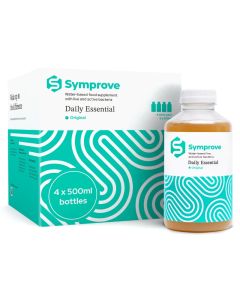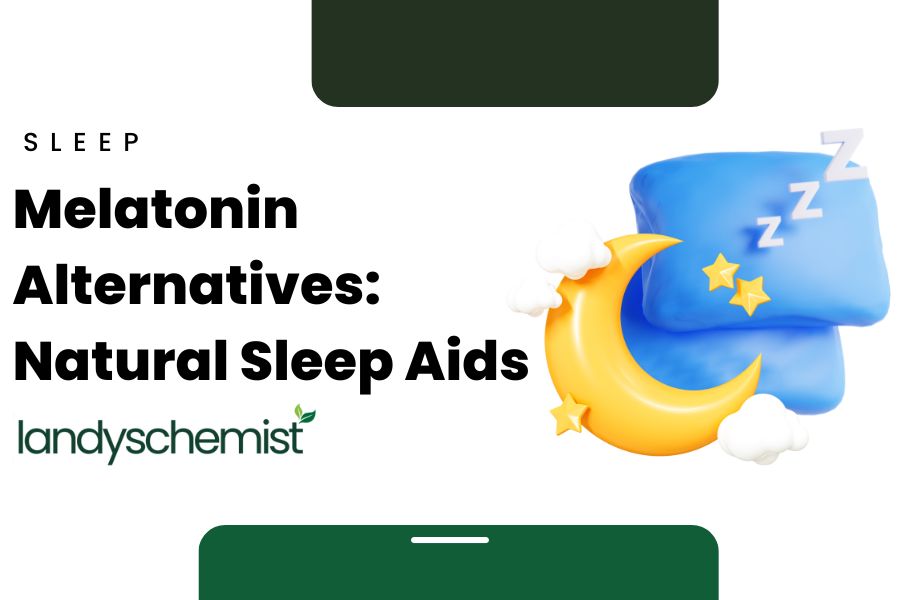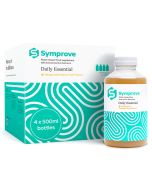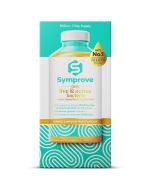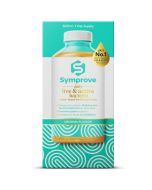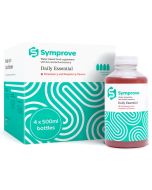
Exploring the Gut-Skin Axis: How Probiotics Influence Skin Health
Probiotics has been gaining more and more attention for their myriad of benefits in the world of health and wellness, from aiding digestion and our immune health, to supporting sleep quality and more. To some this may be surprising, but there is also a connection between our gut health and the condition of our skin.
Emerging research has increasingly highlighted the impact our gut health can have on our skin. Understanding this relationship, known as the Gut-Skin Axis may help us understand more about the gut-skin connection and how it can help to support clear, glowing skin.
In this blog, we explore what the gut-skin axis is, what the relationship between gut health and our skin is and ways we can support our gut to help boost our overall health and skin radiance.
What is the Gut-Skin Axis?
The gut-skin axis describes the complex, bidirectional (two-way) communication between the gut microbiome and the skin, which highlights how the state of our gut health directly influences skin health and vice versa.
This relationship may suggest that a balanced and healthy gut microbiome can improve skin conditions, as it has an affect on inflammation levels, immune responses and nutrient absorption which plays roles in maintaining the skin barrier integrity and supporting overall skin health.
Research1 has shown that dysbiosis of the gut can play a role in the development of skin disorders such as psoriasis, atopic dermatitis, and rosacea. This highlights the importance of understanding the role our gut has on our skin.

Does your gut health affect the skin?
There is an increasing amount of evidence to suggest that a more balanced gut microbiome helps to support skin health and maintain skin barrier function.
When there is an imbalance in gut microbiota 2 , it can lead to increased inflammation and altered immune responses which can affect the skin.
A study found that there may be a relation between atopic dermatitis and psoriasis with irritable bowel syndrome 3. This is due to inflammation within the gut which can lead to immune dysregulation and impaired gut barrier function. It may also be due to a lower diversity of microbes within the gut, which can result in a weaker gut lining which can lead to more inflammatory conditions and microbial dysbiosis 3 on the skin. A study 4 also demonstrated that infants with eczema had a lower diversity of bacteria within their gut and higher levels of the Clostridia species.
How does an unbalanced gut can affect our skin:
When the gut becomes unbalanced, it can result in certain symptoms showing on the body. Here are some signs that can indicate an unbalanced gut microbiome.
- Skin irritation due to the release of pro-inflammatory cytokines throughout the body.
- Skin dryness – an imbalanced microbiome can lead to inflammation and cause an immune response.Research5 has also shown that those with eczema tend to have lower levels of beneficial bacteria.
- Acne – Imbalances within the gut can lead to a leaky gut, imbalanced gut microbiome and inflammation which can contribute to acne formation.
- Skin ageing – Gut dysbiosis can affect the integrity of the skin6 and contribute to premature ageing. When the skin microbiome is compromised, it can affect the skin barrier function and skin hydration.
How can I improve my gut health for skin?
Diet to support your gut microbiome:
It is important to provide the right nutrients and foods to support a healthy and balanced gut microbiome. Having a low-quality diet can increase inflammation which also influences skin health.
It is recommended to consume 30 different plant foods each week7 (which includes fruits, vegetables, wholegrains, legumes, nuts, seeds and herbs). Eating a diet rich in fibres such as fruits, vegetables and legumes will help to support the growth of healthy bacteria in the gut. Prebiotic foods including garlic, chickpeas, onions, bananas, and beans also support the growth of healthy gut bacteria.
Probiotics to help rebalance your gut:
Research indicates that probiotics are beneficial to support a healthy gut microbiome which can reduce inflammation 8 and oxidative stress on cells. This can in turn help to reduce the growth of harmful bacteria and maintain gut barrier integrity. Reducing inflammation on the body and supporting the gastrointestinal tract may help to reduce inflammatory skin conditions such as acne and rosacea 9.
Reducing stress to reduce a compromised gut:
When the body experiences stress, it can result in dysbiosis of the gut 10 which can lead to inflammation, bloating and a compromised gut barrier (or leaky gut). This compromised gut barrier11 can cause bacteria and other toxins to enter the blood stream which can lead to inflammation and trigger an immune response, affecting the skin.
There are multiple ways to lower stress levels including practicing mindfulness and meditation which can help to decrease inflammation. Exercise also helps to lower cortisol levels12, improve mood, and stimulate endorphins which can be beneficial. It is also important to get adequate sleep to reduce stress levels and support gut health.
How can probiotics like Symprove help skin conditions:

Probiotic supplements like Symprove can help to rebalance the gut microbiome which may provide support with:
Probiotics help to rebalance the gut microbiome:
Maintaining the integrity of the gut barrier, preventing harmful substance from entering the body which can cause inflammation that can manifest on the skin. Dysbiosis of the gut has been linked to several conditions 13 like acne, atopic dermatitis and eczema.
Probiotics may reduce inflammation:
Inflammation of the gut can lead to systemic inflammation2, affecting various body parts including the skin. This can exacerbate or even trigger conditions like acne, rosacea, eczema, and psoriasis. By promoting a healthy gut microbiome, symprove may help to reduce gut inflammation which can in term reduce skin inflammation and improve certain skin conditions.
Probiotics support immune function:
70% of our immune cells are within our gut! A healthy and balanced gut microbiome supports a healthy immune system which can protect the skin from pathogens and inflammatory conditions. By regulating the gut-skin axis, probiotics may also help to decrease oxidative stress by suppressing inflammatory responses 14 which may help skin conditions like rosacea 15.
Probiotics enhance nutrient absorption:
The skin requires various nutrients and minerals to maintain proper skin barrier function. Probiotics such as Symprove help to boost the gut’s capacity to absorb essential nutrients and minerals which are important to sustain the skin’s barrier function2. This ensures that the skin obtains the necessary vitamins, minerals and antioxidants for its health and vitality.
Probiotics help skin moisturisation:
Studies indicate that probiotics could help in reducing trans epidermal water loss (TEWL) through the modulation of skin barrier functions, helping to decrease skin dryness.
Research has highlighted that the Lactobacillus rhamnosus strain14 can enhance the skin barrier, contributing to decreased moisture loss. Additionally, the Lactobacillus plantarum14 strain has been found to lower the loss of moisture from the epidermis and the depth of wrinkles, underscoring its importance in addressing signs of skin ageing.
Probiotic Recommendations for skin health:
Symprove probiotic Supplement for skin health
Symprove is a water-based probiotic supplement that contains 4 strains of live and active bacteria:
- Lactocaseibacillus rhamnosus NCIMB 30174
- Enterococcus faecium NCIMB 30176
- Lactobacilus acidophilus NCIMB 30175
- Lactiplantibacillus plantarum NVIMB 30173
This unique formulation is designed to survive the acidic environment of the stomach, ensuring that the probiotics reach the gut alive where they are needed.
These probiotics are designed to help rebalance the gut microbiome which may support not only skin health but also digestion, mood, sleep quality and immune function.
This liquid is gluten-free, dairy-free, and suitable for vegetarians and vegans!
Disclaimer:
This article is for informational purposes only and is not a substitute for medical advice. Consult your doctor or healthcare provider before starting any supplements, treatments, or remedies. Ensure a varied and balanced diet and a healthy lifestyle before considering supplements. Supplements should not replace a balanced diet.
References:
- Thye, A.Y.-K. et al. (2022) ‘Gut–skin axis: Unravelling the connection between the gut microbiome and psoriasis’, Biomedicines, 10(5), p. 1037. doi:10.3390/biomedicines10051037.
- De Pessemier, B. et al. (2021) ‘Gut–skin axis: Current knowledge of the Interrelationship between microbial dysbiosis and skin conditions’, Microorganisms, 9(2), p. 353. doi:10.3390/microorganisms9020353.
- Huang, B.L., Chandra, S. and Shih, D.Q. (2012) ‘Skin manifestations of inflammatory bowel disease’, Frontiers in Physiology, 3. doi:10.3389/fphys.2012.00013.
- Abrahamsson, T.R. et al. (2012) ‘Low diversity of the gut microbiota in infants with atopic eczema’, Journal of Allergy and Clinical Immunology, 129(2). doi:10.1016/j.jaci.2011.10.025.
- Mazur, M. et al. (2023) ‘The intestinal and skin microbiome in patients with atopic dermatitis and their influence on the course of the disease: A literature review’, Healthcare, 11(5), p. 766. doi:10.3390/healthcare11050766.
- Ratanapokasatit, Y. et al. (2022) ‘How microbiomes affect skin aging: The updated evidence and current perspectives’, Life, 12(7), p. 936. doi:10.3390/life12070936.
- British Heart Foundation - How can I improve my gut health?, BHF. Available at: https://www.bhf.org.uk/informationsupport/heart-matters-magazine/nutrition/how-can-i-improve-my-gut-health
- Cristofori, F. et al. (2021) ‘Anti-inflammatory and immunomodulatory effects of probiotics in gut inflammation: A door to the body’, Frontiers in Immunology, 12. doi:10.3389/fimmu.2021.578386.
- Searle, T. et al. (2020) ‘Rosacea and the gastrointestinal system’, Australasian Journal of Dermatology, 61(4), pp. 307–311. doi:10.1111/ajd.13401.
- Madison, A. and Kiecolt-Glaser, J.K. (2019) ‘Stress, depression, diet, and the gut microbiota: Human–bacteria interactions at the core of psychoneuroimmunology and Nutrition’, Current Opinion in Behavioral Sciences, 28, pp. 105–110. doi:10.1016/j.cobeha.2019.01.011.
- Mohammad, S. et al. (2024) ‘Atopic dermatitis: Pathophysiology, Microbiota, and Metabolome – A Comprehensive Review’, Microbiological Research, 281, p. 127595. doi:10.1016/j.micres.2023.127595.
- De Nys, L. et al. (2022) ‘The effects of physical activity on cortisol and sleep: A systematic review and meta-analysis’, Psychoneuroendocrinology, 143, p. 105843. doi:10.1016/j.psyneuen.2022.105843.
- Mahmud, Md.R. et al. (2022) ‘Impact of gut microbiome on skin health: Gut-skin axis observed through the lenses of Therapeutics and skin diseases’, Gut Microbes, 14(1). doi:10.1080/19490976.2022.2096995.
- Gao, T. et al. (2023) ‘The role of probiotics in skin health and related gut–skin axis: A Review’, Nutrients, 15(14), p. 3123. doi:10.3390/nu15143123.
- Kober, M.-M. and Bowe, W.P. (2015) ‘The effect of probiotics on immune regulation, acne, and photoaging’, International Journal of Women’s Dermatology, 1(2), pp. 85–89. doi:10.1016/j.ijwd.2015.02.001.
"As an MSc Biotechnology graduate with a keen interest in the microbiome, I've explored the symbiotic relationship between probiotics and skin wellness, examining how the gut microbiome can impact skin clarity and vitality." - Saarah Mengrani, Msc Biotechnology.

